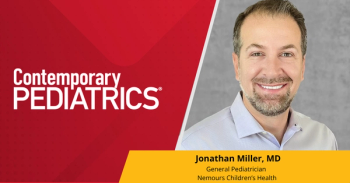
Survey explores parental vaccine hesitancy
Vaccine hesitancy is a major issue in pediatrics and many have wondered how prevalent the issue is. A new survey offers a dispiriting answer.
Vaccine hesitancy is one of the biggest issues facing pediatrics and the 2019 measles epidemic illustrated the fallout of the movement. A
Researchers surveyed families with children having used the largest online panel to generate a representative US sample, which included 4445 parents. Following weighting, they calculated hesitancy using a modified 5-point Vaccine Hesitancy Scale. Parents were labeled as hesitant if they scored >3 on the scale.
Of the 4445 parents surveyed, 2176 parents completed the survey. Overall the prevalence of hesitancy was 6.1% for routine childhood immunizations and 25.8% for influenza vaccines. When asked about having concerns for serious side effects of both routine immunizations as well as influenza vaccines, 12% of the parents said they strongly agreed and 27% said that they somewhat agreed with the statement. When asked about vaccine effectiveness, 70% of parents said they strongly agreed that routine vaccines were effective, but just 26% of parents strongly agreed that influenza vaccines were also effective. Education levels lower than a bachelor’s degree along with household income <400% of the federal poverty level were found to predict hesitancy for both routine and influenza vaccines in multivariable models.
Investigators concluded that roughly 1 in 15 parents in the United States are hesitant about routine childhood vaccines and 1 in 8 parents are worried about the safety of routine childhood vaccines. Meanwhile >1 in 4 parents are hesitant about their child being given the influenza vaccine and only 1 in 4 parents believe that the vaccine is effective. The survey’s results illustrate how difficult a climb lies ahead to return vaccination rates to previous levels.
Reference:
1. Kempe A, Saville AW, Albertin C et al. Parental hesitancy about routine childhood and influenza vaccinations: a national survey. Pediatrics. 2020:145(6):e20193852. doi:10.1542/peds.2019-3852
Newsletter
Access practical, evidence-based guidance to support better care for our youngest patients. Join our email list for the latest clinical updates.








